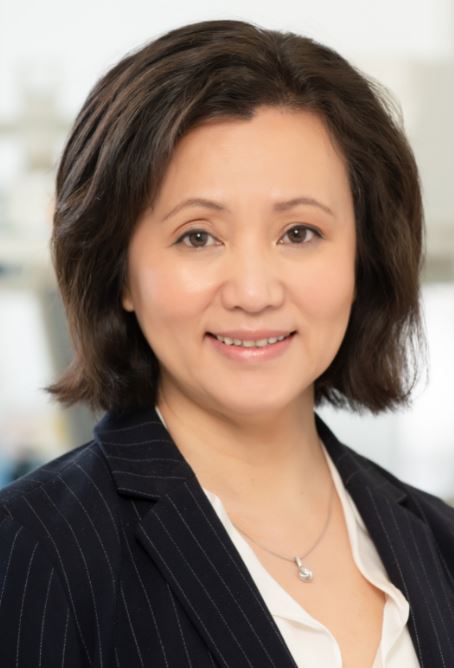From Medical Researcher To CEO

By Ed Miseta, Chief Editor, Clinical Leader

Medical research always seemed to come naturally for Yan Chen, Ph.D. She knew at a young age she wanted to enter the medical field and help people with their medical needs. Little did she know her passion would lead to the pharmaceutical industry and eventually to founding her own company. However, once she landed in the CEO’s chair, she learned the business experience she needed would be a bit more difficult to achieve.
Chen was born and raised in China, where an early interest in disease and treatments led her to attend medical school. She soon discovered that she was interested more in medical research than treating patients. Therefore, after graduating and completing her residency, she opted to make a slight career change. She chose to attend the National University of Singapore and earned a Ph.D. in immunology with a focus on oncology. She later continued that training in the U.S., moving to this country in 1996 and enrolling in the Tufts University School of Medicine immunology program.
“I had a good mentor who helped develop my interest in antibodies,” says Chen, now the founder and CEO of Elpis Biopharmaceuticals. “Two years after my postdoc, I was fortunate to join a company called Phylos. During my six years at Phylos, I worked with a team that created an mRNA display technology platform that is used for human antibody discovery and protein engineering. I helped lead the discovery of a first-in-human antagonist using the display platform.”
Eventually, Phylos was acquired by BMS and Chen left the company, later joining the oncology biotherapeutics team at Novartis. In 2008, she left to join the startup X-BODY Biosciences as its first employee and SVP of research. At that company, she continued the work she had started at Phylos and co-invented dsDNA display technology and a cell-based selection technology platform for antibody and CAR-T discovery. However, in 2015, X-BODY was acquired by Juno Technologies, which was later acquired by Celgene. “That was a lot of acquisitions for me,” says Chen, letting out a laugh.
A NEW CAREER PATH

Thus, in the summer of 2017, Chen started Elpis Biopharmaceuticals. The company has implemented unique mRNA display technology and established proprietary discovery platforms. The latter enables Elpis to rapidly discover multiple molecular modules that can be used to interrogate cancer biology, followed by assembling them into multifunctional or multimechanism therapeutic modalities. “When that information is combined with our existing knowledge of cancer, we will be able to identify molecules that have the right mechanisms to address each type of cancer,” she explains.
BUSINESS CHALLENGES EXIST
Using her own funds, Chen set up a small lab in Boston with three scientists to build the platform and demonstrate a proof of concept. She later turned that into a research collaboration with a pharma company, which subsequently enabled her to attract an investor who gave her the pre-series A funding. Those funds helped her expand the team and move into a larger facility.
Yan Chen, Ph.D., founder and CEO, Elpis Biopharmaceuticals
Despite all of that, Chen’s education and experience were in medical research, not running a company. Thus, the business aspects of starting her own company became her biggest challenges. She used connections in her network to find two advisors with both small and large pharmaceutical experience in corporate development. She wanted to strengthen her pitch and open doors to more investors. The advisors mentored her in such areas as developing a business plan, hiring employees with complementary skill sets, and executing on fundraising.
“They were very helpful in assisting me with that transition to being a business leader,” she states. “In that area, I am still improving, but their expertise helped ease my transition from a scientist to CEO.”
She says one of the things she’s learned about fundraising is that you need to be engaging with your investors and be able to convince them of the scientific innovation and the potential value it will bring to the company. That means ensuring they fully understand your technology/therapeutics. “Scientific success is fundamental to monetary success. Investors are not going to look at you if your science is not innovative. We had to demonstrate why what we are doing is different and more promising than others working in this field. So, our scientific rationale was important, but so was our plan for how we were going to use the funds to advance the science and the company. I believe that combination was what led us to garner the interest of investors and gain their confidence.”
FIND THE RIGHT EMPLOYEES
One of Chen’s former colleagues at Novartis, who shared her same passion and vision, decided to join Elpis as CSO. After that, they hired a VP of business development and corporate strategy and a VP of finance. Most of the hires, though, were on the research side of the business.
Elpis is in the Boston area, where there is ample access to biopharma professionals. Still, hiring can be difficult. Many employees in this space are not anxious to move to a startup, especially one with a new and unproven technology.
When looking for talent, Chen seeks individuals who have the same passion for science and research that she had when entering the industry. She wants people who are innovative and inspired by innovation. If someone is not fully qualified for a certain position, she is willing to provide the additional training they need provided they possess the innovative spirit she seeks. Her current team has grown to 20 employees in just three years.
PARTNERS WILL BE KEY TO FUTURE GROWTH
The next step for Chen and Elpis will be the move into clinical trials. She notes there are always challenges when moving from research into testing on humans. The company has two pipeline products for which it will file an IND in 2021. One is a CAR-T treatment for hematologic malignancies and the other is an immuno-modulator for solid tumors.
Chen knows that to be ready for the clinical trials, she needs to continue building the organization and its team. For example, they will need expertise in CMC, regulatory, clinical, logistics, and more. “We will have to create protocols and timelines and, of course, find the right partners to join us in this journey,” Chen says. “Being in the Boston area, we will be able to easily access the resources we need, stage our growth by hiring key leaders, and work with development and regulatory partners as opposed to trying to hire much of the needed expertise in-house. Doing so would take a lot of time and money, and the company cannot afford either.” Elpis is currently (as of December 2020) vetting partners.
